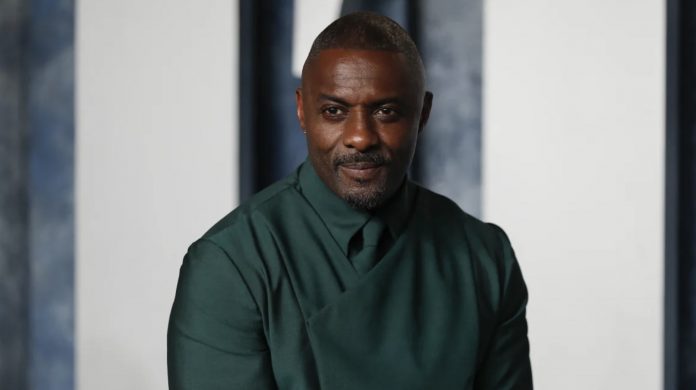Idris Elba นักแสดงผู้มีชื่อเสียงจากบทบาทในซีรีส์ดังอย่าง The Wire และ Luther ได้หันมาให้ความสนใจกับการสร้างอุตสาหกรรมบันเทิงในทวีปแอฟริกา โดยมีเป้าหมายที่ยิ่งใหญ่ในการพัฒนาและสร้างสตูดิโอภาพยนตร์ในแอฟริกา เริ่มต้นที่เกาะแซนซิบาร์ในแทนซาเนีย ซึ่งเป็นจุดหมายแรกที่ Elba เล็งเห็นถึงศักยภาพในการสร้างศูนย์กลางความบันเทิงระดับโลก
แนวคิดนี้เกิดขึ้นเมื่อปีที่แล้วหลังจากที่ Elba ได้พบกับประธานาธิบดีซาเมีย ซูลูฮู ฮัสซัน แห่งแทนซาเนีย ในการประชุม World Economic Forum ที่เมืองดาวอส ประเทศสวิตเซอร์แลนด์ การสนทนาครั้งนั้นนำไปสู่แผนการสร้างสตูดิโอแห่งแรกในแซนซิบาร์ ซึ่งคาดว่าโครงการนี้จะเป็นก้าวแรกในการสร้างอุตสาหกรรมบันเทิงใหม่ในแอฟริกา
ในเดือนสิงหาคมที่ผ่านมา รัฐบาลแซนซิบาร์ได้มอบพื้นที่เกือบ 200 เอเคอร์ให้กับ Elba เพื่อเริ่มการก่อสร้าง โดยรัฐมนตรีว่าการกระทรวงการลงทุนของแซนซิบาร์กล่าวว่า “Idris Elba จะสร้างสตูดิโอที่ทันสมัยไม่ต่างจากฮอลลีวูด นอลลีวูดในไนจีเรีย หรือบอลลีวูด” และยังพูดติดตลกถึงการตั้งชื่ออุตสาหกรรมใหม่ว่า “แซลลีวูด” หรือ “ซาวูด”
Elba ยังมองเห็นว่าศักยภาพด้านความสร้างสรรค์ในแอฟริกายังไม่ได้รับการยอมรับในระดับโลกเท่าที่ควร “ภาพลักษณ์ของแอฟริกาส่วนใหญ่ไม่ได้มาจากแอฟริกาเอง และสื่อส่วนมากมักมุ่งเน้นไปที่การแสดงแง่ลบเกี่ยวกับทวีปนี้” Elba กล่าวในการประชุมที่ลอนดอน “คนหนุ่มสาวในแอฟริกามีความหวังและควรมีโอกาสที่จะเล่าเรื่องราวของตัวเอง”
ในแง่ของเศรษฐกิจ ทวีปแอฟริกามีสัดส่วนประชากร 18% ของโลก แต่มีสัดส่วนเพียง 1% ในภาคเศรษฐกิจสร้างสรรค์ทั่วโลก ซึ่ง Goldman Sachs คาดการณ์ว่าภาคนี้จะเติบโตขึ้นสองเท่าในอีกห้าปีข้างหน้า นอกจากนี้ รายงานของ UNESCO ยังระบุว่า อุตสาหกรรมภาพยนตร์และสื่อของแอฟริกาสามารถสร้างงานได้ถึง 20 ล้านตำแหน่ง และเพิ่ม GDP ของทวีปได้ 20 พันล้านดอลลาร์ภายในปี 2030
แม้จะมีศักยภาพดังกล่าว แต่หลายประเทศในแอฟริกายังคงไม่เห็นความสำคัญของภาคเศรษฐกิจสร้างสรรค์อย่างเพียงพอ โดยเฉพาะในเรื่องของการออกกฎระเบียบและการลงทุนในด้านลิขสิทธิ์และการจัดหาเงินทุน ซึ่งเป็นอุปสรรคที่จำกัดการเติบโตของอุตสาหกรรมนี้
Elba มองเห็นศักยภาพการเติบโตของอุตสาหกรรมบันเทิงแอฟริกาเช่นเดียวกับความสำเร็จของอุตสาหกรรมบันเทิงเกาหลีใต้ ในช่วงปี 2017 ถึง 2021 อัตราการเติบโตของการส่งออกที่เกี่ยวข้องกับวัฒนธรรมป๊อปเกาหลีใต้เติบโตเฉลี่ย 13.7% ต่อปี ซึ่งเป็นอัตราที่เร็วกว่าการส่งออกโดยรวมถึง 2.5 เท่า โดย Elba คาดการณ์ว่าแอฟริกาสามารถประสบความสำเร็จในลักษณะเดียวกัน
เพื่อสนับสนุนการชำระเงินให้กับผู้สร้างสรรค์ในภูมิภาคที่มีโครงสร้างพื้นฐานทางการเงินที่จำกัด Elba ได้ร่วมมือกับ Stellar แพลตฟอร์มบล็อกเชน ในการเปิดตัว *Akuna Wallet* กระเป๋าเงินดิจิทัลที่ออกแบบมาเพื่ออุตสาหกรรมสร้างสรรค์ ซึ่งช่วยให้ศิลปิน ผู้สร้างภาพยนตร์ และนักดนตรีสามารถจัดการกับการชำระเงินและค่าลิขสิทธิ์โดยไม่ต้องพึ่งพาธนาคารแบบดั้งเดิม
โครงการนำร่องนี้เริ่มต้นในประเทศกานาในสัปดาห์นี้ โดยมีเป้าหมายเพื่อให้คนในอุตสาหกรรมสร้างสรรค์สามารถเข้าถึงบริการทางการเงินได้มากขึ้น ซึ่งจะช่วยสร้างความเท่าเทียมทางการเงินในอุตสาหกรรมนี้ Elba กล่าวเสริมว่า “ถ้ารัฐบาลท้องถิ่นเห็นว่าเศรษฐกิจบันเทิงมีความเจริญ พวกเขาก็จะสนับสนุนให้มันเติบโตต่อไป”
Idris Elba is building an entertainment industry in Africa
Idris Elba has conquered Hollywood with iconic roles in “The Wire” and “Luther.” Now, the London-born actor is shifting his focus to a new stage — one that’s 10,000 miles away. Elba, whose parents hail from Sierra Leone and Ghana, is on a mission to transform the entertainment industry in Africa.
His vision is ambitious. Elba aims to build film studios across Africa, starting in Zanzibar, the Tanzanian semi-autonomous island renowned for its white sand beaches. The idea took root last year when Elba met Tanzanian President Samia Suluhu Hassan at the World Economic Forum in Davos. Their discussions led to plans for the first studio in Zanzibar — a move Elba believes could be the first building block of a global entertainment hub.
In August, the government of Zanzibar promised him nearly 200 acres to begin construction.
“Idris Elba will be building a modern studio similar to Hollywood, Nollywood (in NIgeria), or Bollywood,” Zanzibar’s Minister for Investment, Shariff Ali Shariff, announced. He even joked about naming the industry “Zallywood” or “Zawood.”
The project goes beyond film. Elba believes Africa’s creative sector is underrepresented globally.
“Much of the imagery about Africa isn’t even generated from Africa,” Elba told CNN at the Stellar Development Foundation’s Meridian conference in London this week. “A lot of media is centered around (negative depictions of Africa). But the median age in Africa is 19; these young people are optimistic and deserve the chance to tell their own stories.”
There is also significant money to be made. Though Africa comprises 18% of the world’s population, it accounts for only 1% of the global creative economy — a sector that Goldman Sachs expects to double in the next five years.
The timing couldn’t be better. A recent UNESCO report shows that Africa’s film and audiovisual industry could create 20 million jobs and add $20 billion to the continent’s GDP by 2030. Global players like Netflix and Disney have already made sizable investments in Kenya, South Africa and Nigeria.
Still, many governments in emerging economies have yet to recognize the economic potential of the creative sector, Elba said. The lack of regulation and investment, particularly around copyright and financing, has placed limits on growth.
He sees potential akin to South Korea’s explosive entertainment industry growth: From 2017 to 2021, Korean pop-culture-related exports grew at an average annual rate of 13.7%, 2.5 times faster than overall export growth. Korea’s Economic Research Institute estimates this contributed $27 billion to the economy.
Tanzania is already looking toward that model, partnering with South Korea to send African actors for training in Busan. But Elba understands that building studios alone won’t be enough to spark an entertainment revolution.
“It’s all been a puzzle,” he said, referring to the challenges of structuring a new industry. One critical piece is how to pay creators in countries with limited banking infrastructure.
In a separate but related project aimed at solving the payment issue, Elba has partnered with Stellar, a blockchain-based platform, to introduce Akuna Wallet, a digital wallet designed for the creative economy.
Akuna Wallet allows artists, filmmakers, and musicians to manage payments and royalties without relying on traditional banks. By enabling peer-to-peer transactions in digital currencies, it provides a secure payment system in regions with limited financial infrastructure.
With nearly 60% of Ghana’s population under 25, many young Africans remain unbanked.
A pilot program, launched this week in partnership with the government of Ghana, aims to streamline payments for local creatives, potentially bringing more financial inclusion to the industry.
“Popular platforms for monetizing creative work often require bank accounts, which excludes many young Africans,” Elba said. “We need a financial model that allows for consistent quality creation.”
But if local governments see a healthy entertainment economy, he added, they’ll enable it to grow.
“It will grow, and it can grow,” he said.
By Nicole Goodkind, CNN

















